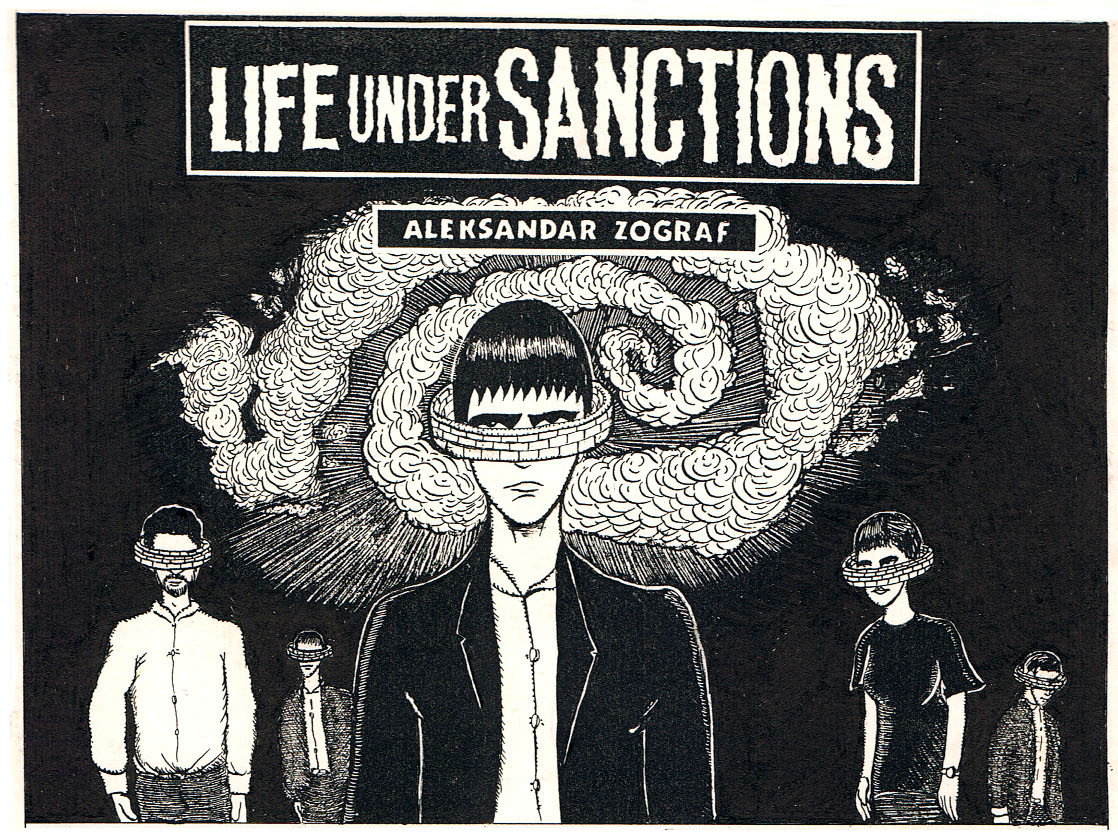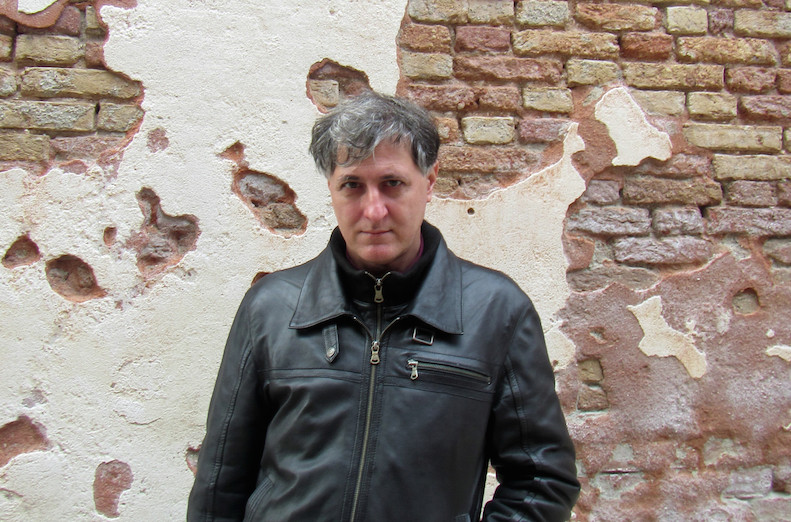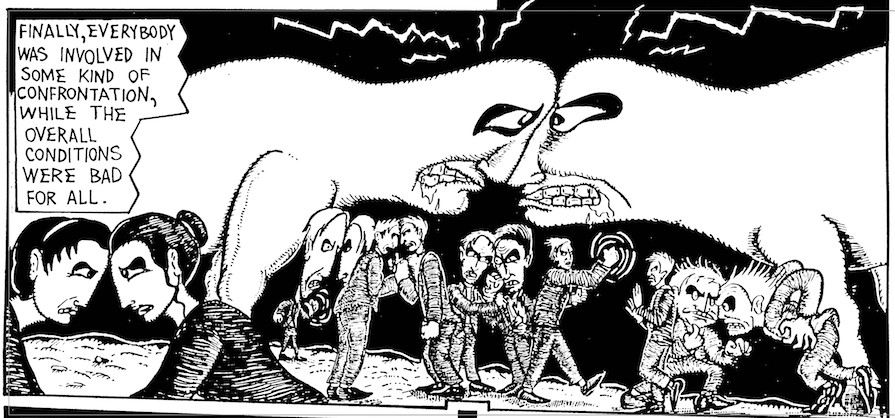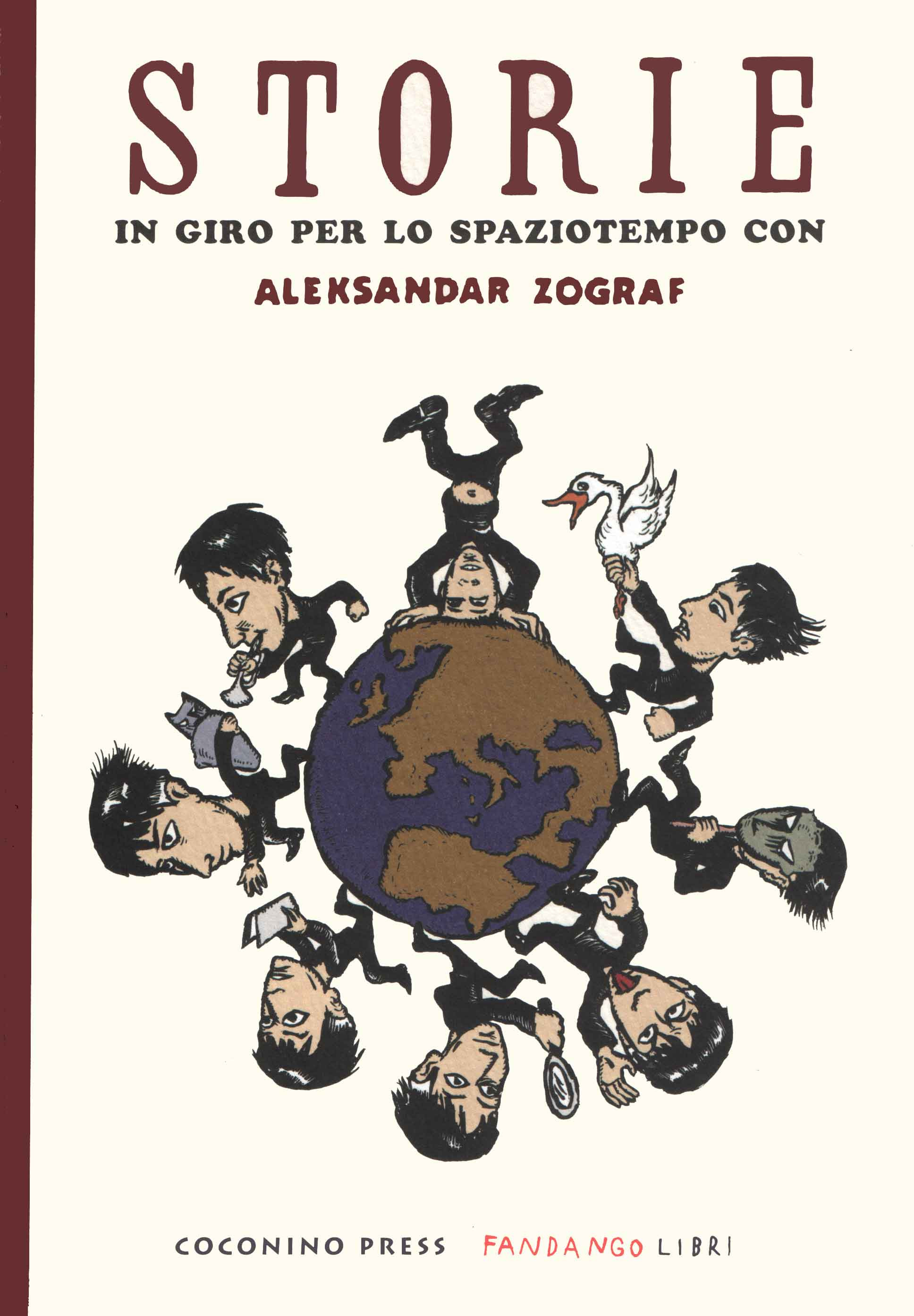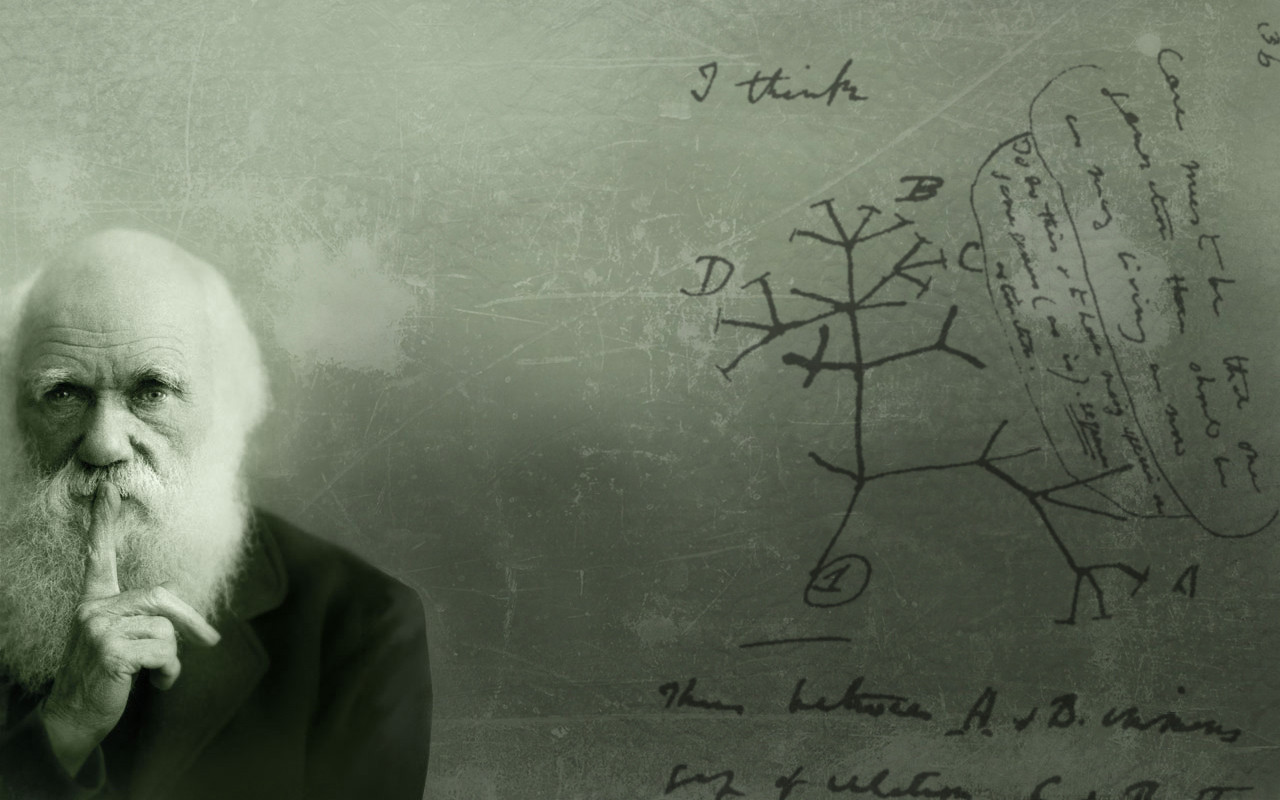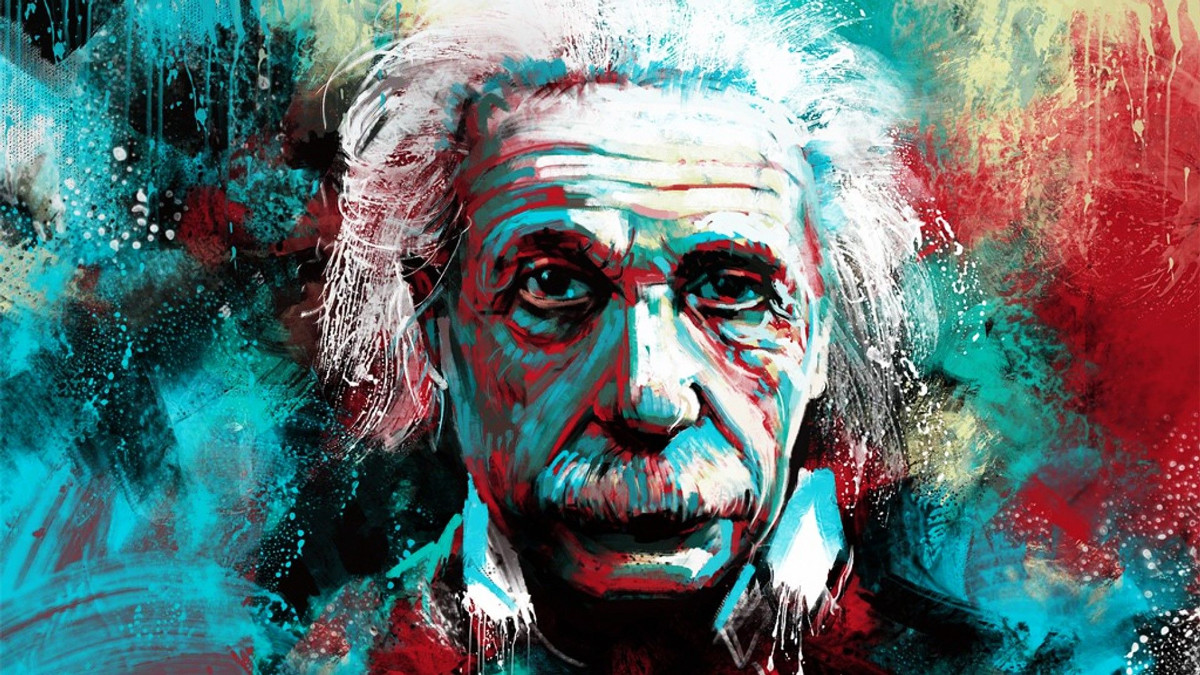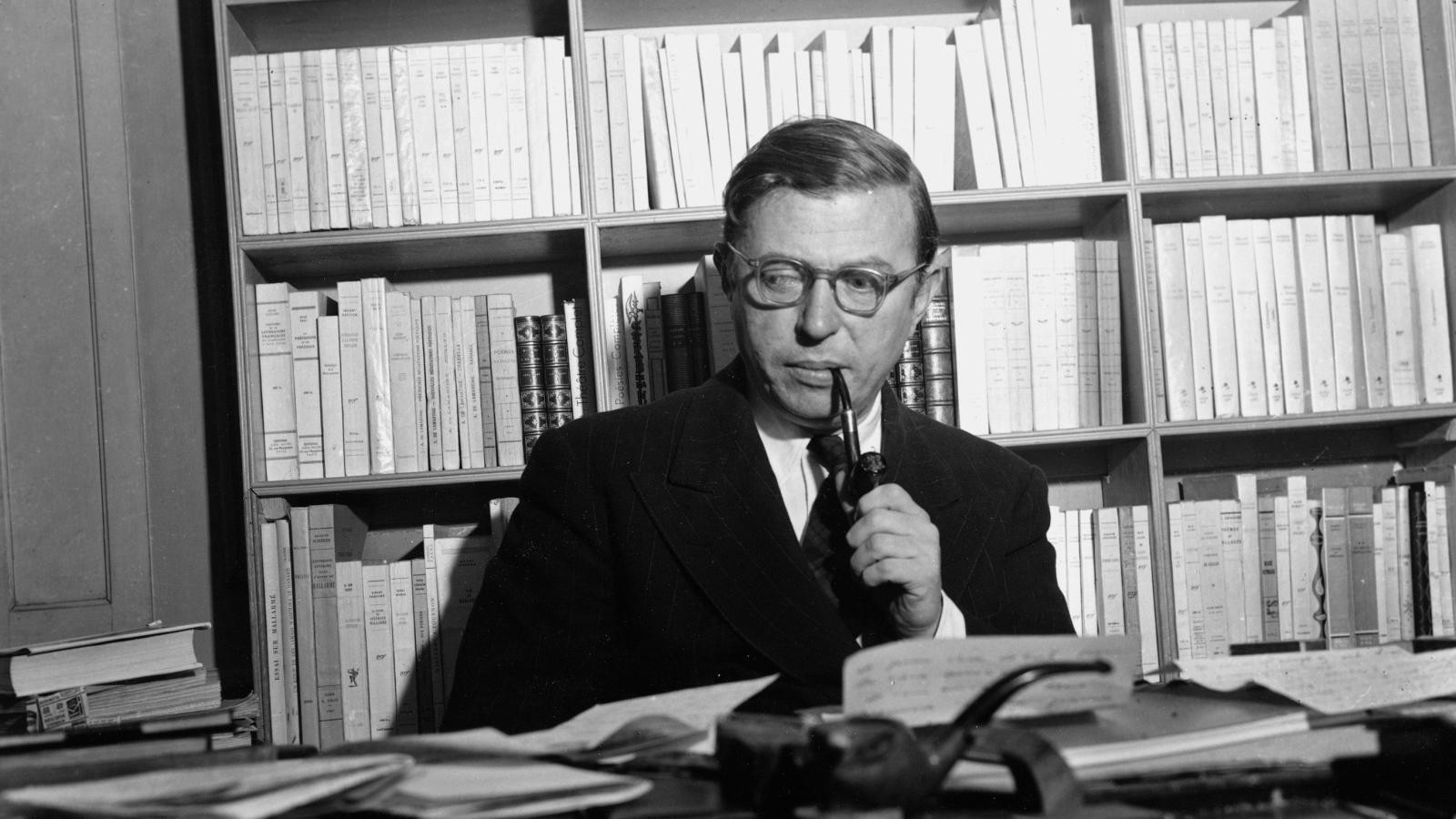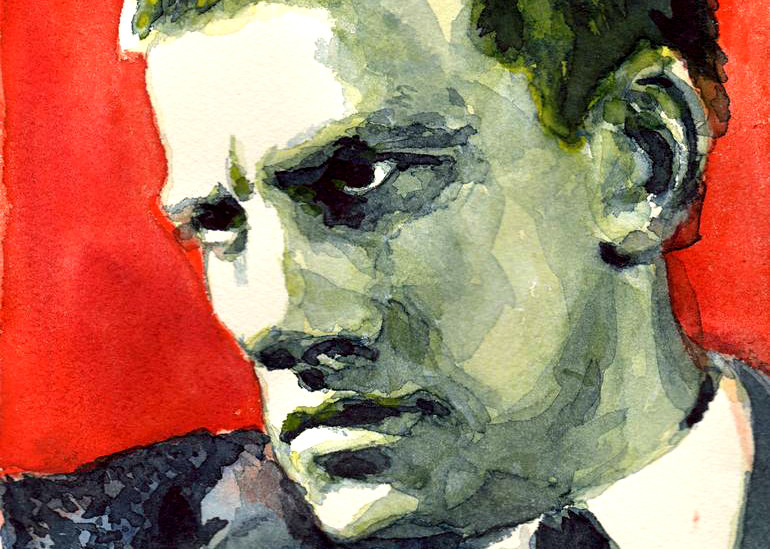It was December of 1994 and the Yugoslavian civil war had reached the peak of . NATO (North Atlantic Treaty Organization) was taking part actively, against the Serbian – Bosnian forces. On the other hand, UN (United Nations) intensifies the economical commercial and athletic embargo against Serbia, leading the country into international isolation and the people into plight state. In Belgrade, Milosevic enhance his regime trough media propaganda and the suppression of the police forces. The famed cartoonist Alexander Zograf, captures the events of that period in a series of comics with a high dose of discernment, objectiveness and humor. Tvxs.gr, after 20 years, seats down and discusses with the famous Serbian illustrator, concerning the past and also about the future, through the eyes of an artist way ahead of his era. Interview – Editors: Fotis Takos, Evaggelia Asimakopoulou
Ads
Looking after twenty years of the start of the Civil War, the rise of nationalist movements was the causation or the cause of the war? Τhe breakup of Yugoslavia was preordained?
Actually, the decomposition of Yugoslavia was a complex event. It involved many factors. Once, it was Dušan Kojić Koja, musician and a founder of Disciplina kičme, a cult band from Belgrade, who said that we will spend the rest of our lives trying to figure out why it happened. It’s funny, even though what he said was coming more from his guts then from his brain, when I heard his words I believed that this rock musician said something more true then many politicians and /or political analysts about this matter. At least it was my feeling about it. I think he was right, many years has passed, but we are still trying to understand what happened, and WHY!? I tried to express this complexity in my comics, by avoiding to put the blame on this or the other aspect of this event. Instead, I tried to depict the intimate story of a small people such as I. If you were able to guess from my own experience what it was all about, then that’s it. I would not to offer any definitive answer to such a complex question.
In «Life under sanctions» you refer to two kinds of artists. Those who the war was a source of inspiration and those who have lost their will to create. Where A. Zograf belongs to?
(Laughs) I was actually very much willing to express my thoughts in a form of comics, the more horrible things were around me the more near was my will to present it in my comics. It is rather bizarre, but it was this tragedy that happened in the everyday reality that accelerated my wish to publish my comics internationally. And at the same time, I did not want to make it the sole characteristic of my artistic quest – some people were expecting that I would continue to speak about the political turmoil in ex-Yugoslavia until the rest of my life, but I actually was changing through time, I experimented with different topics, evolved. I guess that even now I’m exploring the reality of life in Serbia, but in a different way from 1990s…
How easy it is for an artist to create under these conditions? To plan events of unpleasant situations that had experienced a moment ago?
Well, the life of an artist is difficult even under the best of conditions, because artists are on the brink of the society, they depend of weather they would be able to exchange their artistic production to bread, or not… That’s not easy, even in the more efficient societies then Serbian. When the country you lived for many years starts to decompose, or when there’s a war and shortage of some elemental goods, it’s much worse… When the conflict in ex-Yugoslavia started, me and my family were without any savings, and that’s when I really learned what it is to be hungry… Even my art from that period looks pretty much distorted – honestly, I don’t like even to look at it… But even under these conditions I figured that my wish to draw something on my own is very strong, that I can’t stand the feeling of being silent and NOT creating comics…
In your project «All against each other and God against all» you talk about generational conflict between older (supporters of the regime) and youth (opposition supporters). To what extent the Serbian society has affected this conflict?
It is another very complex social situation. Most of the older people remembered the Socialist times, and Tito’s Yugoslavia, as something precious and functional, and many of them really believed that Milosevic was defending the old values, since he was talking against the separatism in different Yugoslav republics. At the same time, it were nationalists who also saw some sort of Messiah in Milosevic, since he worked against the injustices that they believed were done to the Serbian people. Young people wanted changes, they saw Milosevic basically as a retrogard politician, actually youngsters weren’t quite sure what kind of changes they really seek, but they wanted something different anyway… Milosevic’s fall was inevitable, he was just an opportunist, who used this tremendous crisis in order to build his power, but his real goal was not more ambitious then to enlarge his conto in the bank, and he was connected with a lot of money grabbing from the state’s resources. The power corrupts, and in his case a lot of power was connected with building a lot of personal wealth, even if it means stealing from state’s funds,(ha ha). Actually, he was bound to end up as a loser, because when the young people turned against him, their parents decided not to fight their own children, instead they just turned their backs to Milosevic…
You have also criticizes the role of the media in terms of propaganda in favor of the government. There was a possibility to change it or was a “normal” course of events?
State propaganda was in many cases so bad and exhaustive , that people would publicly not define it as untrue, but intimately they did not believed it. They had this problem of being untrue in front of themselves, that’s the double-faced nature of modern day media and it’s propaganda. Not only Milosevic’s propaganda, also in other parts of Yugoslavia media were doing really dirty game, pushing against the “other” side by using the sort of mass hypnosis. I ended up being disgusted by Western media as well, as they offered really shallow, often idiotic view of the conflict. Personally, I was disillusioned after the conflict in ex-Yugoslavia, and about the hypocrisis of the world that we created…
The image of “bad” Serbs has changed internationally or not?
It is still present in the Hollywood movies, the thug, he bad guy is often presented as Serb. Some Serbian actors are readily jumping into this role, of course, so for them it’s not so bad, (Laughs) Still, the most often bad guys in Hollywood movies are actually presented as Russians, so many years after the cold war, so the old prejudices die hard. Still, today people tend to be politically correct and they are not jumping to conclusions as easily as before.
Twenty years later, what is the “social map” of Serbia? What are the problems currently faced by Serbs? What topics would you comic?
Today, Serbia is trying to be at friendly terms with West, and to join EU, which would probably be possible, but after 10 more years. Yet, there are still politicians from Milosevic’s time, his collaborators, now in the different role. Serbia is still has not managed to build an efficient economy, after all the years of crisis. Actually, there is still crisis of this sort or another, but only thing that you can do is to do your best and try to find some creative expression. Since 2003, I am working on 2 page comics for the independent political weekly called Vreme, from Belgrade. Collections of these comics came out in different countries, including France, Italy, Portugal, Hungary and other places… I hope to publish it at some point in Greece too. It’s a lot of work, and I pick a different topic every week, sometimes it’s about my travels, sometimes it is about the long forgotten articles from the papers and magazines, from the 1920s and 1930s, and many other topics (including comics interviews etc). Sometimes, these comics that are speaking about the past are actually again revealing the present day Serbia in a strange way. People are turning around the same problems for decades, and yet nothing really stays the same. If you can understand this absurd situation, you can understand the humanity.
Recently there have been serious incidents in football match between Serbia and Albania. Nationalism in the Balkans is it worrying?
The nationalism of the past is not the same as nationalism of the present time. Now it’s connected with the closed groups, such as football fans, and if the society is going through a challenging situations, this is always where this irrational fury is exploding. But I would rather avoid this projection of the Balkan people as being in perpetual hatred, and not able to live with each other.
What ultimately separates the people of the former Yugoslavia? A future reunification (for example, in terms of confederation) is it science fiction?
There will never be a possibility to revive Yugoslavia, simply because it was killed two times, first by the NAZI occupation in the 40s, and then by the civil war in the 90s, and now there’s the European Union… I think that things would be better if there was a sort of Balkan Union, before the Balkan countries were becoming EU members. But it’s all history now, let’s face the future with some sort of daring enthusiasm! It is supposed that Balkan countries are Europe’s outsiders, it’s true, but at least we should try to express all our anger in comics, or some such harmless media…
Alexander Zograf ( Sasa Rakezic ) was born in the region of Pancevo in Serbia, and he is among the most famous comic illustrators in his country. Zograf becomes internationally famous in the 90s, when his artwork was published in United States (Weirdo ,Zero Zero and Seattle’s Fantagraphics Books) alongside in many european magazines. When it comes to Greece, the collection of his artwork has the title “Regards from Serbia” ( KAPSIMI publications). More famous pecies of his artwork are: Psychonaut 1&2 , Flock of Dreamers, Bulletins from Serbia, Dream Watcher , Jamming with Zograf.
Στην Ελλάδα τα ΜΜΕ που στηρίζουν τις νεοφιλελεύθερες πολιτικές, χρημαδοτούνται από το ... κράτος. Tο tvxs.gr στηρίζεται στους αναγνώστες του και αποτελεί μια από τις ελάχιστες ανεξάρτητες φωνές στη χώρα. Mε μια συνδρομή, από 2.9 €/μήνα,ενισχύετε την αυτονομία του tvxs.gr και των δημοσιογραφικών του ερευνών. Συγχρόνως αποκτάτε πρόσβαση στα ντοκιμαντέρ και το περιεχόμενο του 24ores.gr.
Δες τα πακέτα συνδρομών >